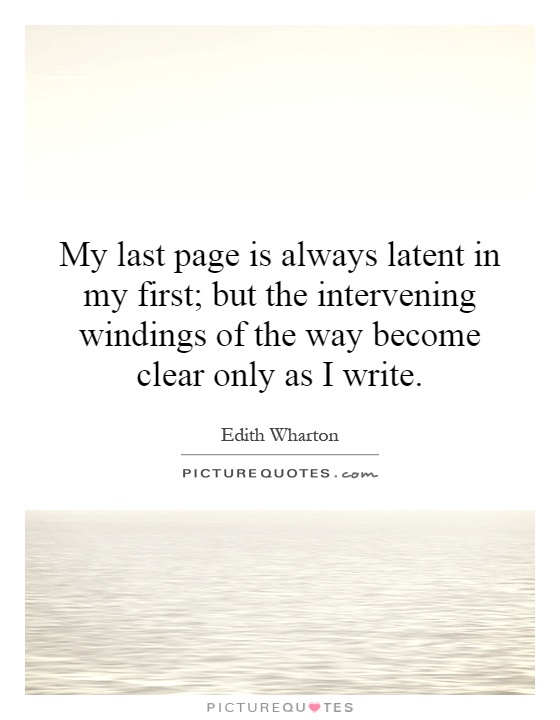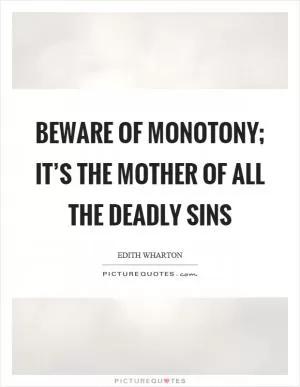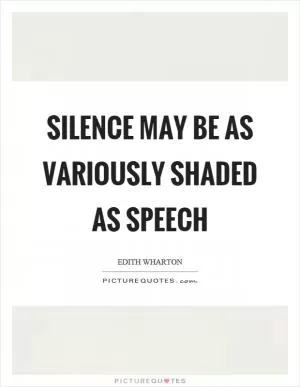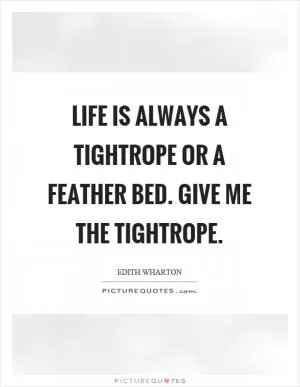My last page is always latent in my first; but the intervening windings of the way become clear only as I write

My last page is always latent in my first; but the intervening windings of the way become clear only as I write
Edith Wharton, a renowned American novelist and short story writer, once said, “My last page is always latent in my first; but the intervening windings of the way become clear only as I write.” This quote beautifully encapsulates the creative process of writing and the journey that writers embark on as they craft their stories.Wharton, known for her keen observations of the upper-class society in the early 20th century, understood the importance of having a clear vision of the ending of a story before embarking on the writing process. By knowing where the story is ultimately headed, the writer can lay the groundwork for the narrative and ensure that each scene and character development leads towards that final destination. This foresight allows the writer to plant seeds and foreshadow events that will come to fruition later in the story, creating a sense of cohesion and inevitability in the narrative.
However, Wharton also acknowledges that the path to that final page is not always clear from the outset. As writers delve into the story, characters take on a life of their own, plot twists emerge, and unexpected themes and motifs reveal themselves. It is in the act of writing, of immersing oneself in the world of the story, that the writer begins to uncover the hidden connections and nuances that shape the narrative. Each word written, each sentence crafted, brings the writer closer to understanding the winding path that leads to the resolution of the story.
For Wharton, writing was a process of discovery and exploration, a journey of self-discovery as much as a creative endeavor. By allowing the story to unfold organically, she was able to tap into the depths of her imagination and bring forth stories that resonate with readers to this day. In embracing the uncertainty of the creative process, Wharton found clarity and purpose in her writing, ultimately leading her to create timeless works of literature that continue to captivate and inspire readers around the world.












 Friendship Quotes
Friendship Quotes Love Quotes
Love Quotes Life Quotes
Life Quotes Funny Quotes
Funny Quotes Motivational Quotes
Motivational Quotes Inspirational Quotes
Inspirational Quotes